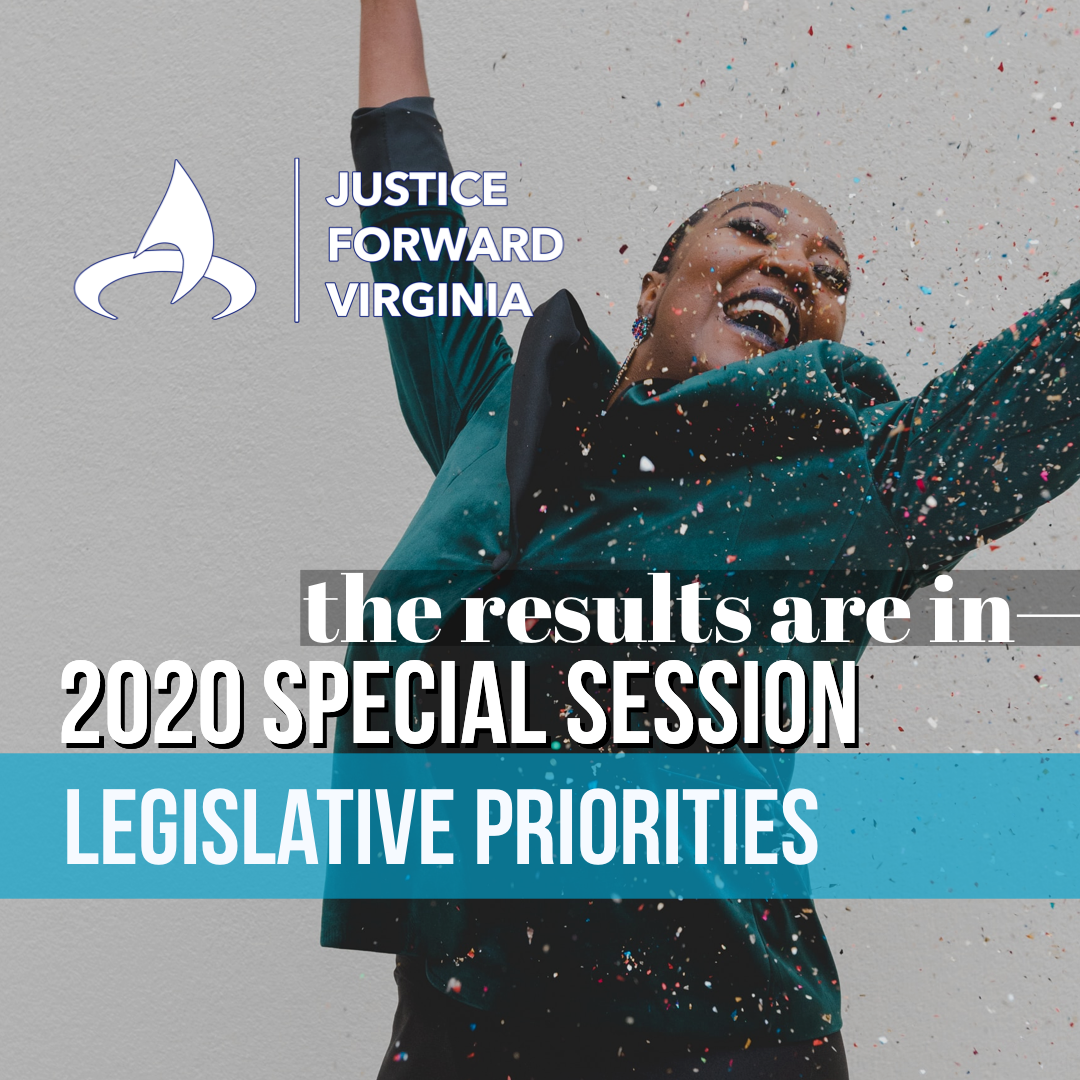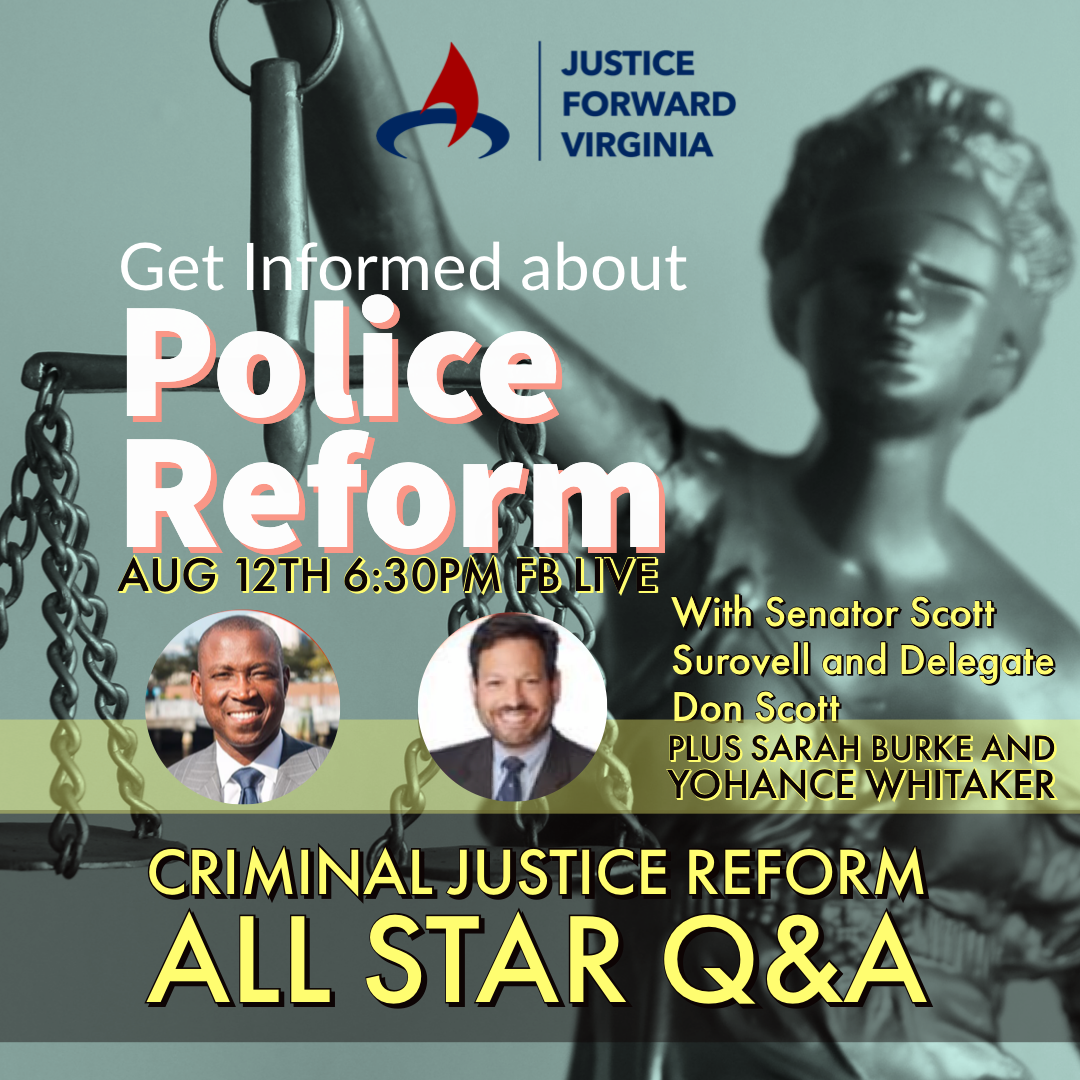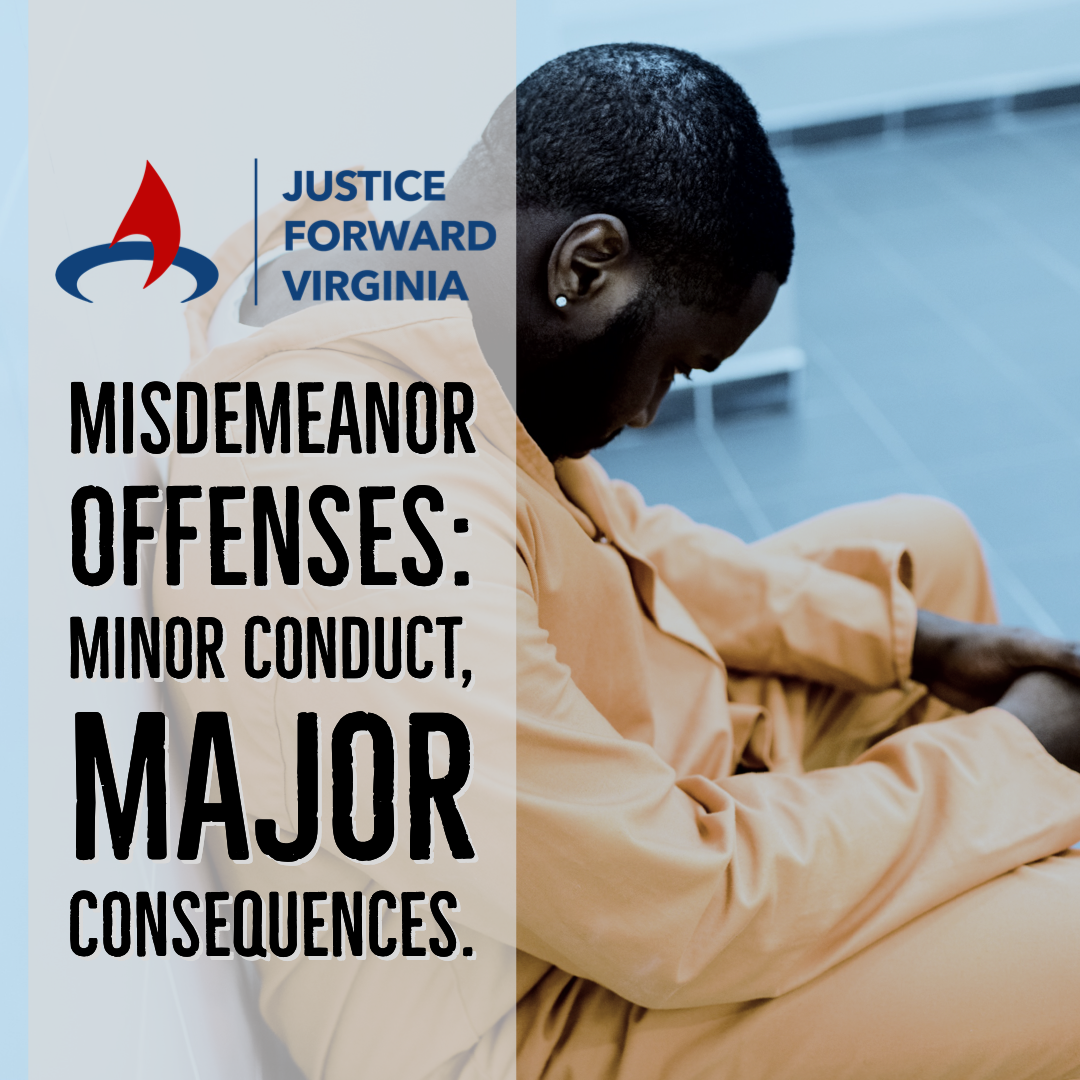Thursday July 1, 2021, marks the enactment of several of Justice Forward Virginia’s priority criminal justice reforms in the Commonwealth. Our legislative policy development and statewide advocacy ended presumptions against bail, created degrees of robbery, ended the petit larceny three strikes rule, allowed evidence of mental illness to be presented at trial, created a unified pretrial data collection system, legalized marijuana, abolished the death penalty, ended the jury penalty, and reformed a truly broken probation system in Virginia.
Read MoreWe made it through the 2020 Special Session and have lots to celebrate. Find out what happened with Justice Forward’s priority legislation: Jury Sentencing, Pretextual Policing, Earned Sentence Credits, Expungement Reform, and Assault on Law Enforcement Officers.
Read MoreStill have questions about police reform as we approach the special legislative session? Tune in on August 12 from 6:30-8:00pm when we're bringing back some of the most popular guests from our "Get Informed About Police Reform" explainer series!
Read MoreA misdemeanor is a criminal offense punishable in Virginia by a fine up to $2500 or jail time up to 12 months. Despite being minor offenses, misdemeanors have impacts on the lives of the individuals charged far greater than the charge implies. From remaining in jail while awaiting trial if bail can’t be procured or accepting a plea just to get out of jail, just the accusation of a misdemeanor can turn a defendant’s life upside down. This is followed by a criminal record that lasts a lifetime (expungement is not allowed) and can prevent a person from getting jobs and housing as well as increase the likelihood of being arrested again.
Read MoreVirginia law limits what punishments jurors are allowed to recommend. They can’t recommend alternatives to jail or fines - including probation, treatment, rehabilitation, or community service. This practice is unfair to both juries and to defendants and should be changed.
Read MoreVirginia’s current law allows prosecutors to force a defendant into a jury trial, which means a jury sentence, if convicted. Sentencing ranges often require juries to give a minimum sentence that don’t apply to judges and juries are not allowed to be told about or recommend alternatives to incarceration, such as probation, drug or mental health treatment, or community service. A simple change that allows defendants to choose sentencing by a judge is one step toward a more fair system.
Read More






